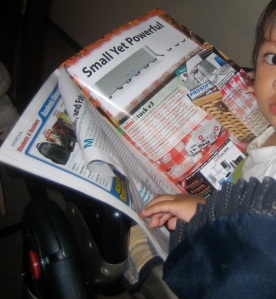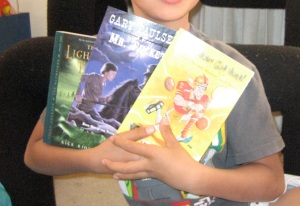“Ahiya, let’s play Jack en Poy to see who will read the book first!”
We were on our way to the local library to get the next installment to the Mortal Instruments series by Cassandra Clare.
Both kids read the first three books (City of Bones, City of Ashes, and City of Glass) and now, they wanted to borrow the remaining three (City of Fallen Angels, City of Lost Souls, City of Heavenly Fire).
My 8-year old is already planning on how to solve the problem of who will get first dibs in the event that there is only one copy available. They agreed that the hand game is the best way to settle the problem.
The library had two copies of Book#5, but only one of Book #4, and no Book#6. They checked out the three books, and just for good measure, included a couple of graphic novels and a book that was in the library’s suggested readings. It was a long weekend afterall.
By the time we got home, Jack en Poy was shelved and a coin toss was now the preferred method to settle their book dilemma. Jack en Poy is fun and entertaining, but there is a lot at stake and I wouldn’t hear the end of it if one suspected the other of peeking and changing the hand gesture at the last moment. So, I fully supported the switch.
I was commissioned to toss the quarter, catch it, and then flip it on my hand. Heads would mean my 10-year old son reads it first.
Unfortunately for my daughter, she lost the coin toss. But fortunately for her, she didn’t have to wait very long. Her ahiya reads fast and was able to give her the book by lunchtime. By dinnertime, they were in their rooms with their own copy of the next book.
These strategies worked for me in encouraging my children to read:






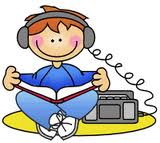
 The story in our CD deck
The story in our CD deck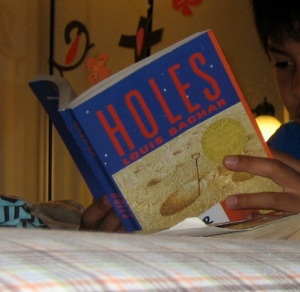
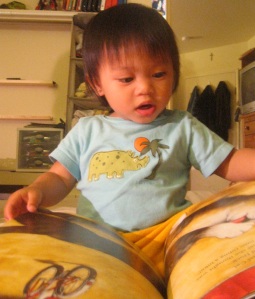 At 18 months
At 18 months